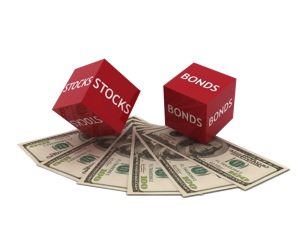
Remember September 2007? That’s when the stock market was at an all-time high. Within 18-months it dropped by almost 50 percent. Just last week, after four long years, the market finally made it back to that September 2007 high point. It has been a tough time for everyone in the world, but we learned some valuable lessons.
The first lesson is that the stock market will have ups and downs. We can’t predict when they will happen or how big those fluctuations will be. But one thing we can count on is a market rebound. The key is to maintain a long-term view with your investments. The worst thing to do is sell stocks after a big decline. Unfortunately, most investors did sell during this last downturn.
Admittedly, things were pretty bad. Forgive yourself if you did get out of the market. Take solace in the fact that you had lots of company. What’s most important is to learn a lesson from this experience. That’s what life is all about anyway. We make mistakes, learn from them, and hopefully don’t repeat the same mistake twice.
We will all get another chance to prove we learned our lesson. There will be many more downturns in the stock market during our lifetimes. When this inevitably happens, you’ll remember the experience of the last five years and know that the best option is to hold tight until the storm passes.
A second lesson to learn from the 2008 recession is to have the right mix of stocks and bonds that fits your risk tolerance and age. Stocks will drop a lot more than bonds during a recession. The more you have in stocks, the bigger your portfolio will decrease. Only invest an amount in stocks that you are comfortable enough to stick with them through the market cycle.
What is the right amount to hold in stocks? It’s different for everyone. There are tons of books and Web sites that help you figure out the right mix of stocks and bonds for you. Also check out your employer retirement plan Web site for a tool to determine an asset allocation. If you sold stocks during the last downturn, that means you had too much in stocks to begin with. Make sure to hold fewer stocks this time around so you are prepared for the next recession.
If you are retired or near retirement, there is one extra step to take. Make sure to hold enough of your investments in cash and CDs to get through a 3-year market downturn. For example, let’s say you live on $50,000 per year. Social Security and pensions (if you have one) cover $30,000 of your living expenses. That leaves $20,000 per year that comes from your investment portfolio. A retiree would want to keep $60,000 (3-years x $20,000) in cash or CDs. This cash cushion allows you to not sell investments during a market decline until it recovers.
Remember, keep a long-term view of your investments and hold the right amount in stocks and bonds. This will prepare you to stay on course no matter what’s happening with the economy.
Steve Doster is a Certified Financial Planner™ professional providing commission-free financial advice for do-it-yourself investors. You can reach Steve at Doster Financial Planning by phone 619-688-1192 or email steve@dosterfinancialplanning.com. You can also follow Steve on Facebook, Linked In, Twitter, or blog to get more personal finance advice and tips.











